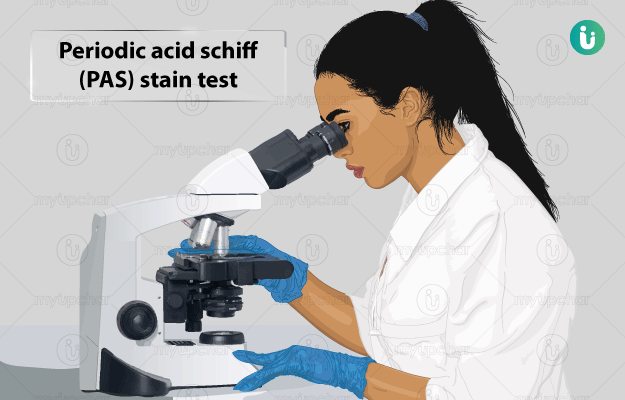What is Periodic Acid Schiff (PAS) Stain test?
The PAS staining is a procedure that is commonly used in laboratories for the identification of carbohydrate molecules, primarily glycogen, but also some glycoproteins and proteoglycans, in body tissues. It is mainly done to study body structures and organs which have high amount of these carbohydrates.
Glycogen is found in some amounts throughout the body, however, it is present in the greatest amount in the liver, endometrial glands, vaginal epithelium, cardiac muscles and skeletal muscles. PAS is used for staining all of these structures in the body along with other structures such as connective tissues, mucus and basement membranes.
Staining highlights the features of the tissues examined and enhances their contrast. This allows the examiner to study the cells and tissues under a microscope.
The PAS stain test uses the chemicals periodic acid and Schiff reagent to stain tissues, which, together make the glycogen containing cells appear magenta in colour.
Sometimes, other stains such as hematoxylin are used along with the PAS stain to provide greater visual contrast and to properly visualize nuclei or other elements in the tissue. This process is called counterstaining.














